News
-
 Earth
EarthCOVID-19 lockdowns dramatically reduced seismic noise from humans
Human-caused seismic activity was reduced by as much as 50 percent around the globe during lockdowns as a result of the coronavirus pandemic.
-
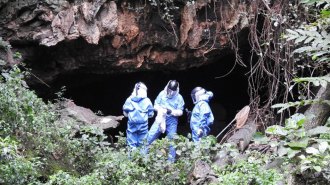 Health & Medicine
Health & MedicineTo prevent the next pandemic, we might need to cut down fewer trees
Investing in halting deforestation and limiting the wildlife trade could be a cost-effective way to reduce the risk of pandemics, a new analysis finds.
-
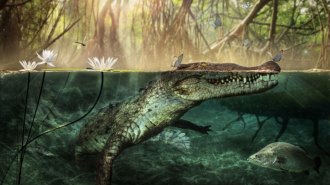 Paleontology
PaleontologyAn ancient skull hints crocodiles swam from Africa to the Americas
A group of crocs, or at least one pregnant female, may have made a transatlantic journey millions of years ago to colonize new land.
-
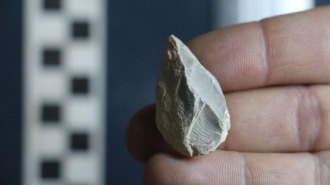 Archaeology
ArchaeologyStone artifacts hint that humans reached the Americas surprisingly early
Finds uncovered in a Mexican cave suggest North America may have had human inhabitants more than 30,000 years ago — way before archaeologists thought.
-
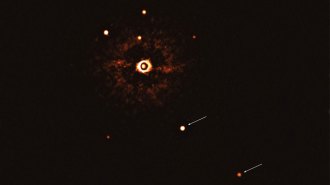 Astronomy
AstronomyThis is the first picture of a sunlike star with multiple exoplanets
A first family portrait reveals a weird cousin of the solar system: a star about the mass of the sun orbited — distantly — by two massive gas giants.
-
 Health & Medicine
Health & MedicineA blood test may show which COVID-19 patients steroids will help — or harm
An inflammation marker was a good indicator of which patients had lower or higher risks of dying or needing a ventilator when given steroids.
-
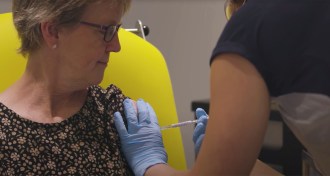 Health & Medicine
Health & MedicineCOVID-19 vaccines by Oxford, CanSino and Pfizer all trigger immune responses
In three clinical trials, vaccine candidates appear safe and induce the production of antibodies and other immune cell responses against the coronavirus.
-
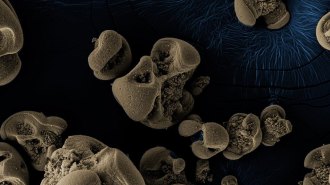 Microbes
MicrobesScientists stumbled across the first known manganese-fueled bacteria
A jar left soaking in an office sink helped scientists answer a century-old question of whether bacteria can use manganese for energy.
-
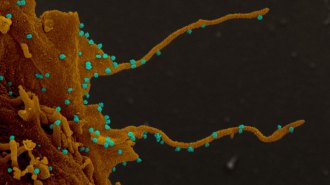 Health & Medicine
Health & MedicineCoronavirus-infected cells sprout filaments that may spread the virus
Like other coronaviruses, the virus behind COVID-19 causes infected cells to grow spindly projections that may act as highways to other cells.
By Jack J. Lee -
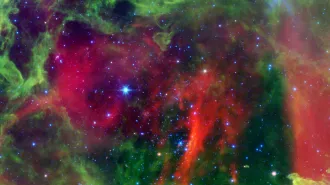 Astronomy
AstronomyPinning down the sun’s birthplace just got more complicated
Many astronomers think that the sun was born in a loose association of thousands of stars. A new study suggests there’s another possibility.
-
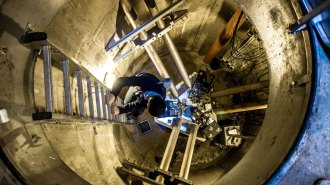 Physics
PhysicsA giant underground motion sensor in Germany tracks Earth’s wobbles
A giant underground gyroscope array has taken its first measurements of how the world goes ’round.
-
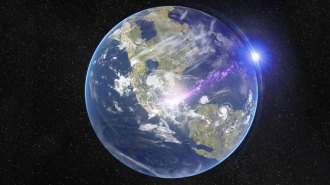 Earth
EarthAn asteroid impact, not volcanism, may have made Earth unlivable for dinosaurs
New simulations add to growing evidence that an asteroid strike, rather than the Deccan Traps eruptions, caused the end-Cretaceous extinction.
By Megan Sever